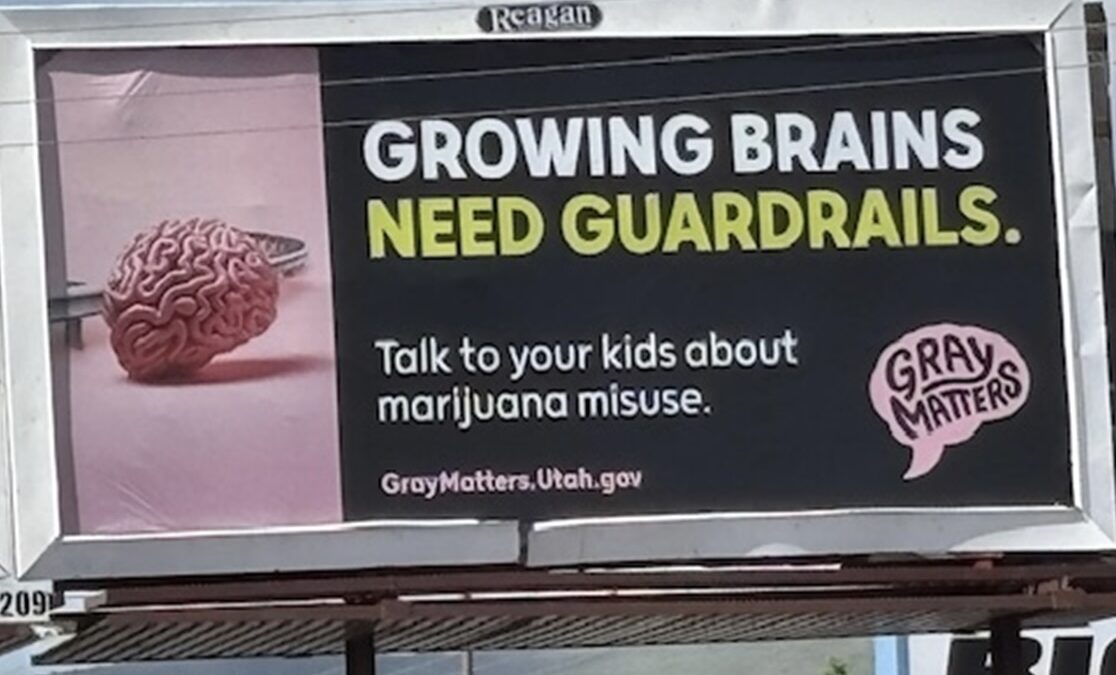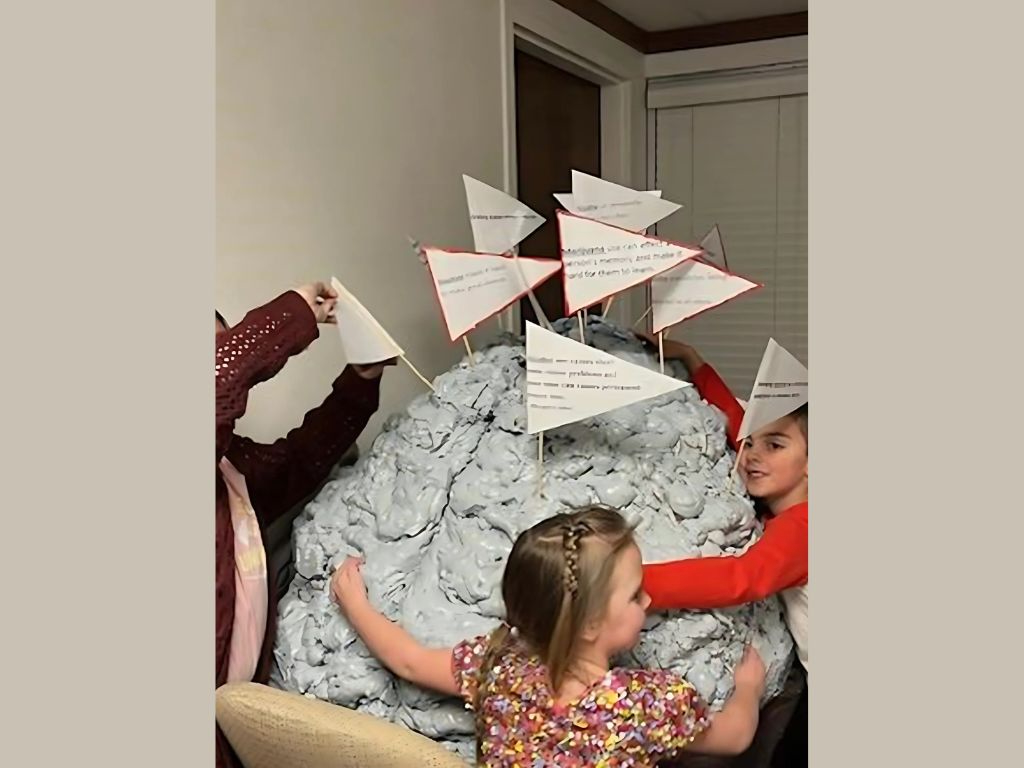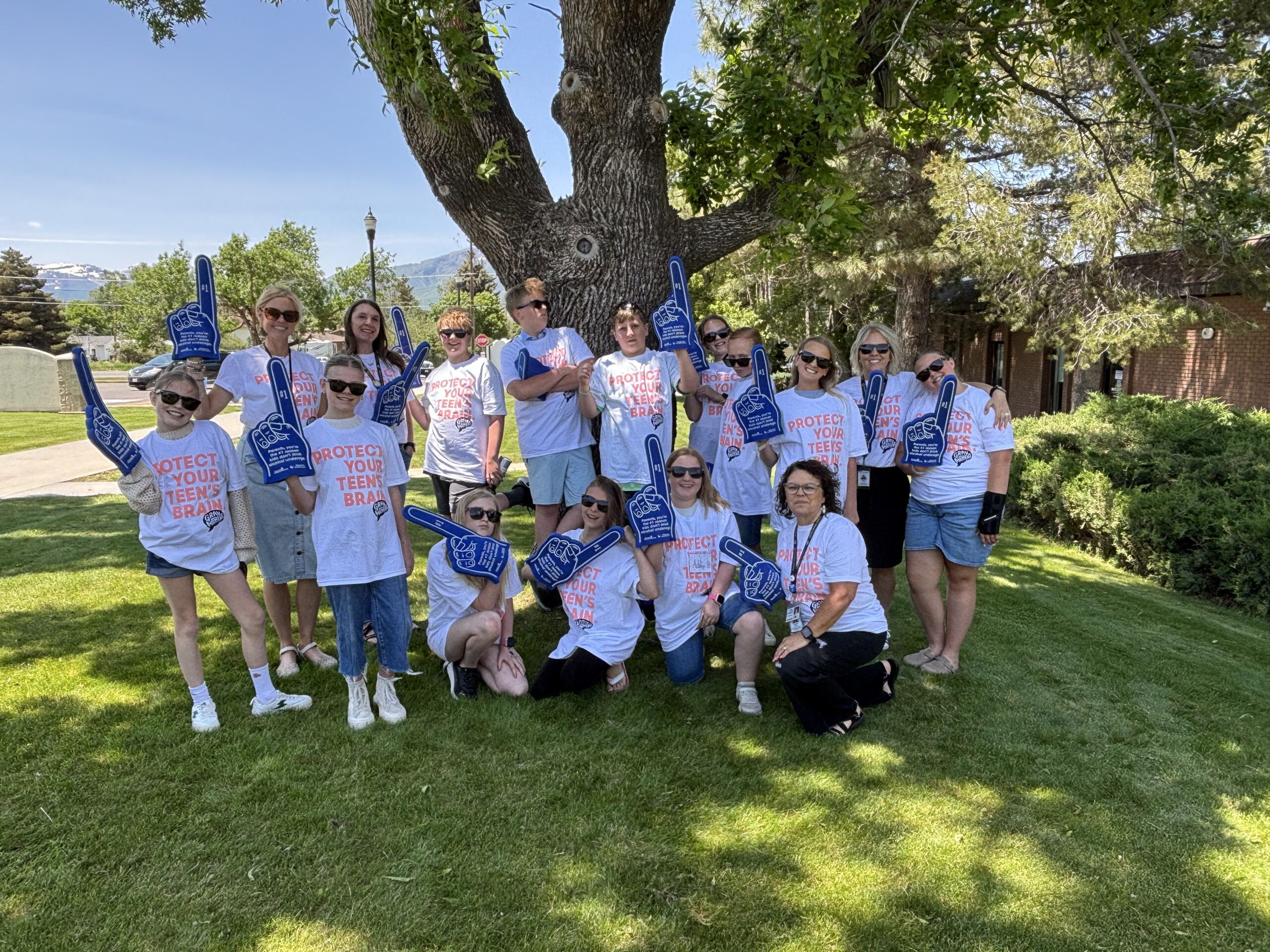Sponsored
Gray Matters Campaign urges parents to speak up about marijuana risks

A billboard in Wasatch County features the Gray Matters campaign's message: “Growing Brains Need Guardrails.” The initiative urges parents to talk to their children about the risks of marijuana misuse. Photo: Wasatch Behavioral Health
WASATCH COUNTY, Utah — A new campaign from Wasatch Behavioral Health is urging parents to have clear, consistent conversations with their children about the risks of marijuana use, citing a rise in youth usage and confusion around the drug’s legality.
The Gray Matters campaign was developed in response to data from the 2023 SHARP (Student Health and Risk Prevention) survey, which revealed an increase in marijuana use among teens in Wasatch County. According to Trudy Brereton, prevention coordinator for Wasatch Behavioral Health, 17.6% of local 12th graders reported having tried marijuana in their lifetime, while 11.4% reported using it in the past 30 days—a number that has steadily increased since 2019.
“We do see it slowly going up,” Brereton said. “In 2019, we were 8.5% with past 30-day use.”

The Gray Matters campaign, launched in coordination with prevention coordinators across Utah, seeks to educate both youth and parents about the harmful effects of marijuana on the developing teen brain.
“We really wanted to clarify that marijuana use on a teen’s developing brain has some harmful effects,” Brereton said. “And we also wanted to make sure that parents understood that same message—that the law says you need to be 21 or older and have a medicinal marijuana card to use it, and the reason for that is to protect the teenage brain.”
Brereton emphasized that many teens mistakenly believe marijuana is safe due to its legalization for medical use.
“Teens were really confused when medicinal marijuana was legalized in Utah,” she said. “They were like, ‘Oh, well, if it’s okay to use for medical reasons, what does that mean?’”
Research cited by Brereton points to lasting impacts on teen brain development. “A teen who uses marijuana regularly is at risk for harm in the area of their brain responsible for memory retention,” she said. “They’ve found that heavy marijuana use with teens can cause impaired learning and a decrease in IQ. Even if a teen quit using, those lost IQ points were never fully recovered.”
Brereton also noted a troubling link between marijuana use and increased mental health challenges. “Teens say they use it for anxiety or depression, but long-term studies show it actually increases anxiety and depression,” she said. “It might make them feel better in the moment, but over the long term, it makes things worse.”

One of the campaign’s primary goals is to help parents understand their influence.
“Parents just assume their children know how they feel,” Brereton said. “But it’s really important for parents to set up clear guidelines. Just like we do with underage drinking, it’s about communicating a no-tolerance expectation.”
She added that open communication and strong relationships can make a significant difference.
“If parents have a good relationship with their children and they practice talking about the easy things, then when the hard conversations come up, they’re more likely to be listened to,” Brereton said. “Bonding, open lines of communication, and clear expectations—those are the most important things.”
Youth involvement has also been central to the campaign. Wasatch Behavioral Health’s youth group helps lead peer education efforts during school hours, including lunchtime campaigns and presentations in health classes.
“We’re reaching about 500 to 600 ninth graders every year through those classes,” Brereton said. “And we also host a big event called Family Dinner in the Park, where we give parents information about the campaign and marijuana prevention.”
The campaign’s reach extends into the community through billboards and event partnerships. While formal data on the campaign’s impact comes from the biannual SHARP survey, Brereton said the team also relies on feedback from event surveys and informal assessments to gauge effectiveness.
“We ask parents what their top concerns are with their children—vaping, marijuana use, social media—and that gives us an idea of what’s still showing up as a concern,” she said.
As the campaign continues, Brereton said Wasatch Behavioral Health hopes to scale and adapt it over time, integrating it with broader mental health and substance use prevention efforts.
“We see the long-term effects of teen marijuana use in treatment,” she said. “It’s really important for us to support prevention on the front end. Prevention is a lot less expensive than treatment down the road.”
For Brereton, the message is clear: prevention starts at home, and it must be ongoing.
“Sometimes we think, well, let’s just bring it up once,” she said. “But if a youth hears the same message at school, at home, and in the community, they start to understand this is serious. As parents and caregivers, don’t give up the fight. Keep talking about it. It has real long-term prevention impact on the youth in our community.”



















